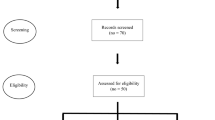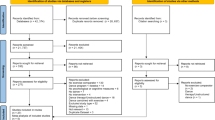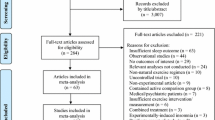Abstract
Depression is a major determinant of quality of life in individuals with Parkinson’s disease. The aim of this study was to evaluate the effects of a program of Ai Chi aquatic therapy on pain, depression and quality of life in people with Parkinson’s disease. Participants were randomized to receive dry land physiotherapy treatment (control group) or aquatic Ai Chi sessions in the pool (experimental group). The outcome measures used included the VAS pain scale, the Geriatric Depression Scale and the SF-36 quality of life scale. In the experimental group treated with aquatic therapy, significant differences were found in the pain, depression and quality of life variables post-treatment (p < 0.001). In the control group, improvements were only observed in the VAS pain scale, and these were less significant than the changes found in the experimental group (p = 0.006). The significant changes registered in the experimental group at the post-treatment assessment were maintained 1 month after completing the experimental intervention program. In conclusion, these findings indicate that physical exercise performed in water has positive effects on some of the factors that influence mood and quality of life in people with Parkinson’s disease.



Similar content being viewed by others
References
Broen MP, Narayen NE, Kuijf ML, Dissanayaka NN, Leentjens AF (2016) Prevalence of anxiety in Parkinson’s disease: a systematic review and meta-analysis. Mov Disord 31(8):1125–1133
Chaudhuri KR, Healy DG, Schapira AH (2006) Non-motor symptoms of Parkinson’s disease: diagnosis and management. Lancet Neurol 5(3):235–245
Dissanayaka NN, Sellbach A, Matheson S, O’Sullivan JD, Silburn PA, Byrne GJ, Marsh R, Mellick GD (2010) Anxiety disorders in Parkinson’s disease: prevalence and risk factors. Mov Disord 25(7):838–845
Dissanayaka NN, Sellbach A, Silburn PA, O’Sullivan JD, Marsh R, Mellick GD (2011) Factors associated with depression in Parkinson’s disease. J Affect Disord 132(1–2):82–88
Reijnders JS, Ehrt U, Weber WE, Aarsland D, Leentjens AF (2008) A systematic review of prevalence studies of depression in Parkinson’s disease. Mov Disord 23(2):183–189
Shulman LM, Taback RL, Rabinstein AA, Weiner WJ (2002) Non-recognition of depression and other non-motor symptoms in Parkinson’s disease. Parkinsonism Relat Disord 8(3):193–197
Ferreri F, Agbokou C, Gauthier S (2006) Recognition and management of neuropsychiatric complications in Parkinson’s disease. CMAJ 175(12):1545–1552
Alexopoulos GS (2005) Depression in the elderly. Lancet 365(9475):1961–1970
Leentjens AFG, Dujardin K, Marsh L, Martinez-Martin P, Richard IH, Starkstein SE, Köhler S (2013) Modeling depression in Parkinson disease diseasespecific and nonspecific risk factors. Neurology 17(12):1036–1043
Wu PL, Lee M, Huang TT (2017) Effectiveness of physical activity on patients with depression and Parkinson’s disease: a systematic review. Plos One 12(7):e0181515. https://doi.org/10.1371/journal.pone.0181515
Chana-Cuevas P, Juri-Claverías C, Alburquerque D, Soto-Olmedo MJ, Benavides-Canales O (2006) Risk factors associated to the presentation of episodes of major depression in a population of outpatients with Parkinson’s disease. Rev Neurol 42(9):521–524
Bosboom JL, Stoffers D, Wolters E (2004) Cognitive dysfunction and dementia in Parkinson’s disease. J Neural Transm 111(10–11):1303–1315
Schrag A (2006) Quality of life and depression in Parkinson’s disease. J Neurol Sci 248(1–2):151–157
Poewe W, Seppi K (2001) Treatment options for depression and psychosis in Parkinson’s disease. J Neurol 248(3):12–21
Ford B (2009) Parkinson disease: pain in Parkinson disease: the hidden epidemic. Nat Rev Neurol 5(5):242–243
Santos H, García-Antelo MJ, Ivánovic-Barbeito Y, Díaz-Silva JJ, Sobrido MJ (2012) Tratamiento de los trastornos de la marcha en la enfermedad de Parkinson. Rev Neurol 54(5):61–68
Ayán C, Cancela JM (2012) Effects of aquatic exercise on persons with Parkinson’s disease: a preliminary study. Sci Sports 27:300–304
Moreno CB, Hernández-Beltrán N, Munévar D, Gutiérrez-Álvarez AM (2002) Dolor neuropático central en enfermedad de Parkinson. Neurologia 27(8):500–503
Pérez-de la Cruz S, García-Luengo AV, Lambeck J (2016) Effects of an Ai Chi fall prevention programme for patients with Parkinson’s disease. Neurologia 31(3):176–182
Hoehn MM, Yahr MD (1998) Parkinsonism: onset, progression, and mortality. Neurology 50(2):318–334
Folstein MF, Folstein SE, McHugh PR (1975) “Mini-mental state”. A practical method for grading the cognitive state of patients for the clinician. J Psychiatr Res 12:189–198
Vilagut G, Ferrer M, Rajmil L, Rebollo P, Permanyer-Miralda G, Quintana JM, Santed R, Valderas JM, Ribera A, Domingo-Salvany A, Alonso J (2005) El Cuestionario de Salud SF-36 español: una década de experiencia y nuevos desarrollos. Gac Sanit 19(2):135–150
Yesavage JA, Brink TL, Rose TL, Lum O, Huang V, Adey MB (1983) Development and validation of a geriatric depression screening scale: a preliminary report. J Psychiatr Res 17:37–49
Martínez de la Iglesia J, Onís Vilches MC, Dueñas Herrero R, Albert Colomer C, Aguado Taberné C, Luque Luque R (2002) Versión española del Cuestionario de Yesavage abreviado (GDS) para el despistaje de depresión en mayores de 65 años: adaptación y validación. MEDIFAM 12:620–630
Varas-Fabra F, Castro E, Pérula LA, Fernández MJ, Ruiz R, Enciso I (2006) Caídas de ancianos de la comunidad: prevalencia, consecuencias y factores asociados. Aten Primaria 38(8):450–455
Stubbs B, Binnekade T, Eggermont L, Sepehry AA, Patchay S (2004) Pain and the risk for falls in community-dwelling older adults: systematic review and meta-analysis. Arch Phys Med Rehabil 95(1):175–187
Gómez-Esteban JC, Tijero B, Somme J, Ciordia R, Berganzo K, Rouco I (2011) Impact of psychiatric symptoms and sleep disorders on the quality of life of patients with Parkinson’s disease. J Neurol 258:494–499
Martinez-Martin P, Rodriguez-Blazquez C, Kurtis MM, Chaudhuri KR, NMSS Validation Group (2011) The impact of non motor symptoms on health-related quality of life of patients with Parkinson’s disease. Mov Disord 26:399–406
Opara JA, Brola W, Leonardi M, Błaszczyk B (2012) Quality of life in Parkinson’s disease. J Med Life 5:375–381
Huang TT, Liu CB, Tsai YH, Chin YF, Wong CH (2015) Physical fitness exercise versus cognitive behavior therapy on reducing the depressive symptoms among community-dwelling elderly adults: a randomized controlled trial. Int J Nurs Stud 2015(52):1542–1552
Leentjens AFG, Lousberg R, Verhey FJR (2002) Markers for depression in Parkinson’s disease. Acta Pyschatr Scand 106(3):196–201
Havlikova E, Rosenberger J, Nagyova I, Middel B, Dubayova T, Gdovinova Z (2008) Impact of fatigue on quality of life in patients with Parkinson’s disease. Eur J Neurol 15(5):475–480
Rahman S, Griffin HJ, Quinn NP, Jahanshahi M (2008) Quality of life in Parkinson’s disease: the relative importance of the symptoms. Mov Disord 23:1428–1134
Behari A, Srivastava AK, Pandey RM (2005) Quality of life in patients with Parkinson’s disease. Parkinsonism Relat Disord 11:221–226
Hinnell C, Hurt CS, Landau S, Brown RG, Samuel M, Grp P-PS (2012) Nonmotor versus motor symptoms: how much do they matter to health status in Parkinson’s disease? Mov Disord 27:236–241
Funding
This research received no specific grant from any funding agency in the public, commercial, or not-for-profit sectors.
Author information
Authors and Affiliations
Corresponding author
Ethics declarations
Conflict of interest
The author declares that there is no conflict of interest.
Ethical standards
The study procedures were performed according to the Declaration of Helsinki, and approved by the Bioethics Committee of the main author’s institution (UALBIO2017/008).
Informed consent
All participants signed an informed consent form prior to participating in the study and during an informative session presenting the study.
Rights and permissions
About this article
Cite this article
Pérez-de la Cruz, S. Mental health in Parkinson’s disease after receiving aquatic therapy: a clinical trial. Acta Neurol Belg 119, 193–200 (2019). https://doi.org/10.1007/s13760-018-1034-5
Received:
Accepted:
Published:
Issue Date:
DOI: https://doi.org/10.1007/s13760-018-1034-5




